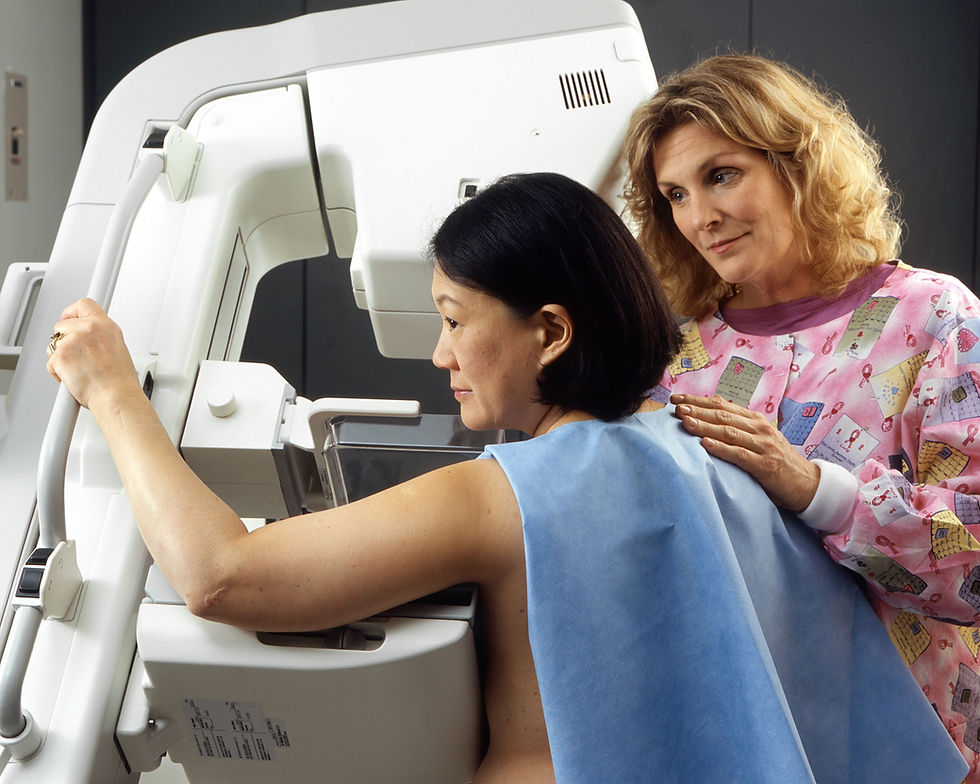My Sister-in-Law Died…
- Dr. Rachel Winstedt, ND

- Sep 30, 2025
- 2 min read
I have a lot of four-letter words for cancer. You probably do too…

Kaitlin celebrated turning 48 in June and took her last breath in early August. The warmth and light of her love was a beautiful thing to experience, and we are all finding our new normal right now. In honor of Kaitlin, I am determined to provide you with accurate information about detecting and preventing cancer.
October is Breast Cancer Awareness Month. Maybe you’ve seen the pink ribbons everywhere...
Here are some stats on Breast Cancer to know:
· Breast cancer is the 2nd most common cancer among women in the U.S. (after skin cancers)
· It is also the 2nd-leading cause of cancer death among U.S. women (behind lung cancer)
· 1 in 8 (13.1%) women in the U.S. will be diagnosed with breast cancer
· 1 in 43 (≈2.3%) women will die from breast cancer
· 5-year survival for invasive breast cancer is about 91% and 99% for localized breast cancer.
· 5-year survival is for cancer that has spread beyond the breast is ~30%
· Only about 5–10% of breast cancer cases are caused by inherited gene mutations like BRCA1/2.

Factors beyond genetics that increase risk of developing Breast Cancer:

· Obesity (especially after menopause),
· Alcohol consumption
· Lack of physical activity
· Certain hormone therapies
Early Detection is key to Surviving Breast Cancer.

In April 2024, the U.S. Preventive Services Task Force (USPSTF) issued a new recommendation on breast cancer screening.
USPSTF Guideline:

• Screening mammography is recommended every 2 years for women aged 40 to 74 who are at average risk of breast cancer.
• For women 75 or older, the USPSTF states there is insufficient evidence to support a routine screening recommendation (i.e. the balance of benefits vs harms is unclear in that age group).
In a few days I’ll share more information on things you can do to reduce your risks of developing breast cancer from a Naturopathic, Functional Medicine standpoint. Help me help others by sharing this information with your friends and family. Even if you don't need to get screened for cancer, chances are someone you know and love does.
Yours in Health,
Dr. Rachel, ND




Comments